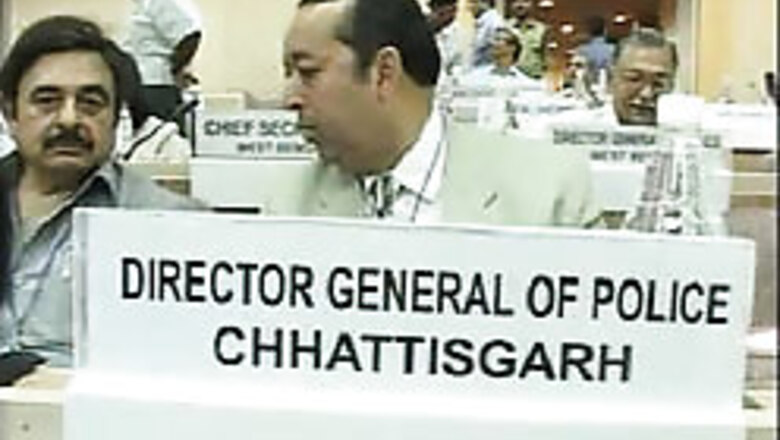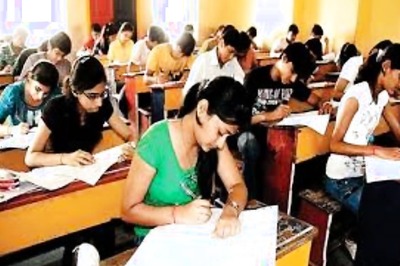
views
New Delhi: A high-level meeting of Home Ministry officials and 13 naxalite-affected states laid emphasis on a synergy between various police and para-military forces deployed in the states hit by naxalite activities.
The meeting was held to chalk out strategies to deal with the menace in the wake of stepped-up violence by various left extremist groups particularly in Orissa and Chhattisgarh.
The Centre, on its part, sent out a mixed signal: Naxal violence has been brought under control, but it has the potential to spiral out of control.
That was surprising considering the fact that the government's own statistics today give a very bleak view of the situation. The number of naxal attacks is down from last year, but the casualty figures show no let-up.
In 2005-2006, 157 people died in Naxal attacks as opposed to 114 in the previous year. Chhattisgarh has been the worst-affected state, where 105 people lost their lives in the first three months of this year as compared to just 3 last year.
One of the major decisions taken in the meeting was to use the valuable human resource of retired armed forces personnel for anti-naxal activities. Retired men from the Engineers Corps, who are experts in mine-sweeping, will be used to train the state police.
Given the repeated attacks on railway property, steps are now being considered to strengthen the Railway Police Force and improve intelligence sharing between various agencies.
Friday's meeting was a quarterly stock-taking. But it sets the stage for a special meeting of Chief Ministers from Naxal-affected states. For the first time, it will be chaired by the Prime Minister, an indication of the importance the government is attaching to the Naxal problem.
The meeting told the states to improve ground-level policies, fill up police vacancies, strengthen intelligence collection and sharing mechanism, improve rail security and encourage the role of local resistance groups like Salva Judum in containing violence.
The day-long meeting was attended by chief secretaries and directors general of the 13 states facing such violence including Andhra Pradesh, Bihar, Orissa, Jharkhand, Chhattisgarh, Maharashtra and Madhya Pradesh.
Union Home Secretary V K Duggal, who convened the meeting, laid emphasis on synergy between various police and para-military forces deployed in the states hit by naxalite activities.
PAGE_BREAK
CRPF Director General J K Sinha, Secretary (Internal Security) in the Home Ministry G S Rajagopal and those from the Intelligence Bureau were among others who attended the meeting which assumed significance as it came at a time when the naxal violence had increased by 11.4 per cent this year with major attacks Orissa and Chhattisgarh.
The states like West Bengal, Orissa, Chhattisgarh, Bihar and Jharkhand are understood to have been asked to take a look at the policies of Andhra Pradesh in tackling the Maoist violence as they had bore rich dividends.
In a status paper on the naxal problem, prepared by the Union Home Ministry, the Government, while listing out its multi-pronged policy to deal with the menace, has said it would deal sternly with the groups indulging in violence and has ruled out any dialogue unless the militant groups agreed to give up violence.
The Centre has said political parties must strengthen their cadre base in naxal-affected areas to wean away the youth from the ideology of ultras while noting that naxalism was not merely a law-and-order problem.
The government said it wants to address the menace simultaneously on political, security, development and public perception management fronts in a holistic manner.
"Naxalism being an inter-state problem, the states will adopt a collective approach and pursue a coordinated response to counter it," the paper said.
The government made it clear that 'there would be no peace dialogue by the affected states with the naxal groups unless the latter agree to give up violence and arms'.
"Political parties must strengthen their cadre base in naxal-affected areas so that the potential youth there can be weaned away from the path of naxal ideology," it said.
At present 13 states hit by the menace that 'continues to persist in terms of spatial spread, intensity of violence, militarisation and consolidation, ominous linkages with subversive and secessionist groups and increased efforts to elicit mass support'.
PAGE_BREAK















Comments
0 comment